News
Pure West manager Toby Ellis tells MPs its been ‘impossible’ for him to get a local FM licence
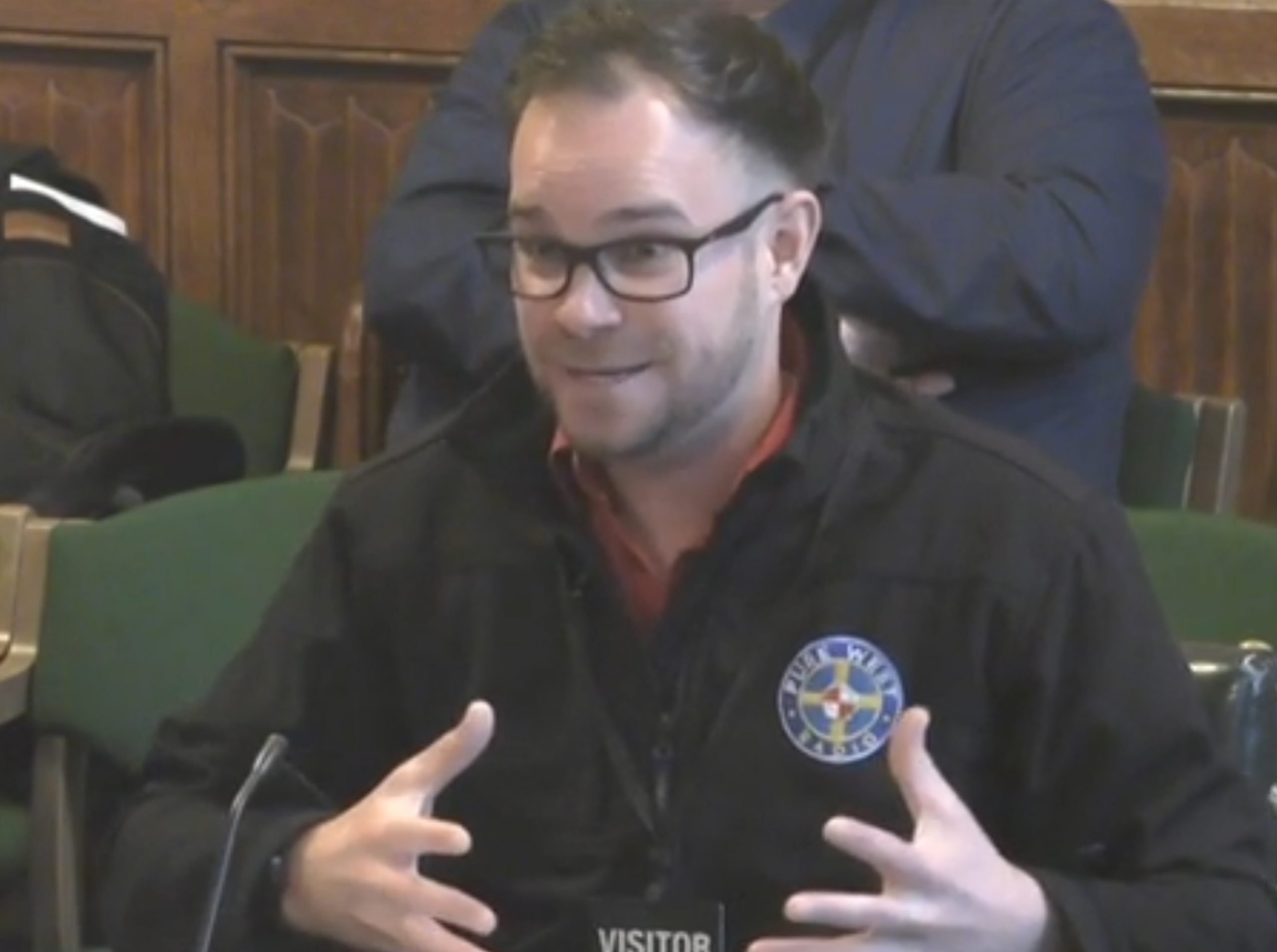
THE WELSH AFFAIRS COMMITTEE met in Parliament this week to discuss radio broadcasting in Wales (Mar 1).
Toby Ellis, Station Manager, Director and Broadcaster, Pure West Radio was joined by Terry Mann, Station Manager, GTFM Radio and Martin Mumford, Managing Director, Nation Broadcasting as witnesses for Wednesday’s morning session.
Chaired Preseli MP by Stephen Crabb, the two hour meeting provided an interesting insight into the state of radio broadcasting in Wales, and more importantly the challenges of keeping radio relevant to local listeners at a time when many larger broadcasters were amalgamating output across multiple stations to cut costs.
During the session it became obvious that things need to change in Wales when it comes to radio broadcasting, and that the status quo could no be maintained. All the witnesses said that the regulator Ofcom could be doing a lot more to support the future of radio services in Wales, ecpecially when it comes to providing licences to new up and coming stations
Toby Ellis was the first in the hot seat. Asked why Pure West Radio was not on FM, and was relying on internet broadcasting, he explained it was down to red tape.
Toby Ellis said: “We haven’t been able to put an application in; that has been the issue.
“Ofcom told us that there has been no community licence available in Pembrokeshire for you . There is no local commercial radio licence, because that is already occupied until 2025.
“That is it, there is no opportunity for you. However, you can apply for a small-scale DAB, but that rollout has taken some time.
“We’re waiting on the award on that – its exciting because we will be able to explore the DAB market. That’s great – but what about FM – you’ve said you’re not turning it off until 2030 and you’re not opening any FM licences in community or local radio – that is a problem.
Asked if he thought that the government regulator was the problem facing radio broadcasters in Wales, Mr Ellis said: “There are problems with Ofcom. We understand their vision and where it needs to go – but certainly stations like ours have suffered.
“We’re coming up to our fifth birthday on April 4 – its been a huge uphill struggle for us from day dot. Have I been deterred a few times – yes many-a-time. I could stack shelves in Tesco and have less stress and probably earn a lot more money.
“We do it because we are passionate about what we do, and we get a lot of people who get incredibly galvanised by it… There shouldn’t be the constraints we’re having.
“We should be able to access more people and if we had an FM licence we would be more self sufficient – we would create more jobs and we would be able to do what we do better.”
Toby Ellis said if his company had a licence he would have more revenue, and he would be more free from “financial constraints” and do more locally including creating a radio academy and launching a B-Tech in Pembrokeshire College.
“We do not want to go begging for money, when money should be spent in other areas. The NHS locally is in an awful state. The waiting times in our local A&E are shocking. I’d rather that money is spent on nurses than local radio. We can get by – with the correct licences and support from Ofcom and government we would certainly be able to flourish further.”
In summary, anyone wanting to start a community radio station in Wales is stuck with using the internet to broadcast, or local DAB radio – which is not yet operational in all areas of Wales. This is expensive, and for Pure West Radio they would need to rent space on two tranmitters to cover the whole of Pembrokeshire.
FM, while is still surives, would be the cheaper and more viable option for Pure West.
The next witness was Terry Mann, Station Manager, GTFM Radio, based in South Wales. He echoed what Mr Ellis had said and confirmed that Ofcom was not issuing any FM licences, instead concentrating on small-scale DAB, at the behest of the government.
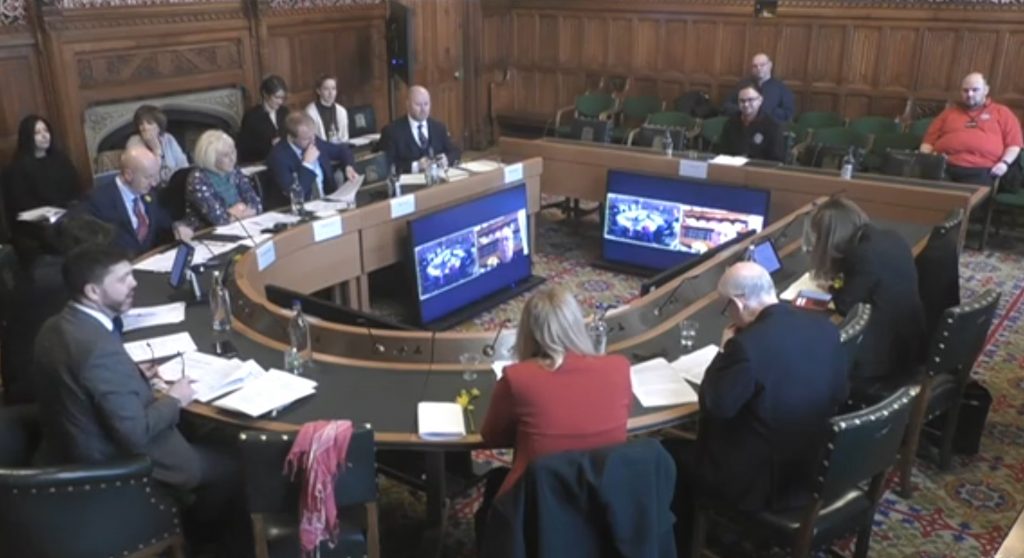
NATION RADIO
The last witness was Martin Mumford, Managing Director, Nation Broadcasting. Chair Stephen Crabb MP asked him how local radio was now.
Stephen Crabb asked: “The vision which Toby Ellis outlined regards a strong role for start up stations serving their communities with real time information communicated to very local audiences, does that have a future in local radio?”
Mr Mumford explained that Nation Radio started in Pembrokeshire over 20 years ago with Radio Pembrokeshire and has been expanding ever since. He explained that nation was operating as much outside Wales as it does in Wales.
“We have been hindered in our expansion because of the lack of radio frequency. Small scale DAB is order-of-the-day
Mr Mumford explained that five years ago 90% of revenue for Nation’s radio stations came from ad sales made by an ‘army of salespeople’ – but that has now shifted to 50%, with the other 50% coming from advertising agencies. He also said that programmatic advertising – advertising through a smart speaker which is tailored to you – is something that Nation are now looking to in the near future..
Mr Mumford also explained that music requirements for radio stations should be done away with. He said that Radio Pembrokeshire has a licence requirement to play pop music – and for example if they wanted to play a classical track they were not allowed. Stephen Crabb agreed – saying that it should be scrapped but the requirement for local news should be kept.
Asked by Stephen Crabb what his definition of local news was, Mr Mumford said that he thought that local news was provided on a national level on his stations in Wales – He said that BBC Radio Wales and Radio Cymru – which cost £24m per year to operate do news on a Wales-wide level and therefore he felt it was not for Nation to do things more locally if the BBC weren’t
HONOUR TO BE INVITED
Speaking after the Parliamentary session Toby Ellis posted on social media, saying: “Why isn’t Pure West Radio on FM or DAB? A question I get asked on a regular basis. Simply we can’t get a licence, today I went right to the top as I got to ask this question to MPs at the Houses of Parliament at an enquiry into local radio in Wales.
“It was an honour to be invited to give evidence and was a wonderful surprise to have Megan Absalom-Lowe from Haverfordwest High Radio and her family showing support at the hearing.
“We have hopefully been heard loud and clear so we can truly put the local back into local radio and get on the radio waves!”
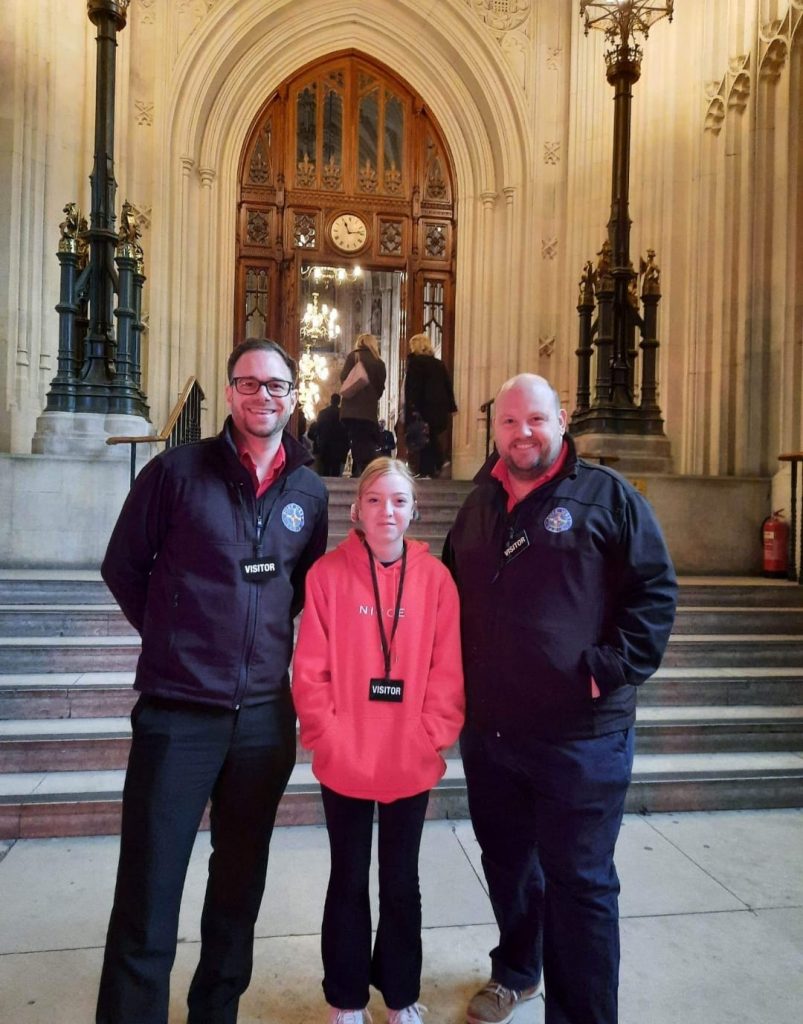
Toby Ellis, Megan Absalom-Lowe and Mathew Rickard at The Houses of Parliament
News
Political leaders and unions react to Milford Haven school assault
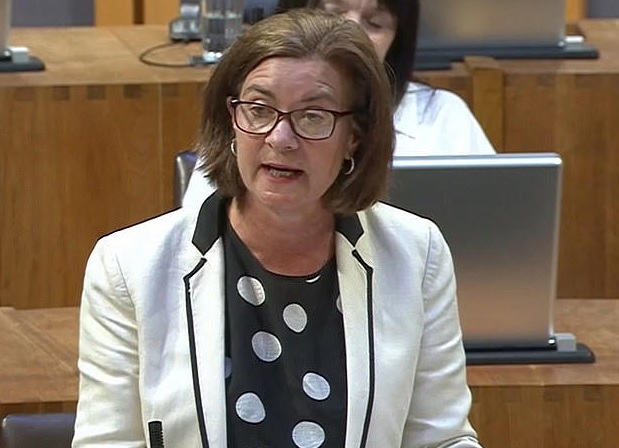
First Minister, MP, MS and teaching unions call for safety and support for staff
POLITICAL leaders and teaching unions across Wales have spoken out following Thursday’s assault on a teacher at Milford Haven School, which led to a lockdown, a major police response and the arrest of a 15-year-old boy on suspicion of attempted murder.
The First Minister Eluned Morgan said she was “deeply concerned” by the incident and stressed that violence had no place in Welsh schools.

Her comments come just days after she visited the Milford Haven campus following the school being placed into special measures by Estyn, where she met leaders to discuss improvement plans and support arrangements.
She said her thoughts were with the injured teacher, their family and the wider school community, and praised the swift response of staff and emergency services.
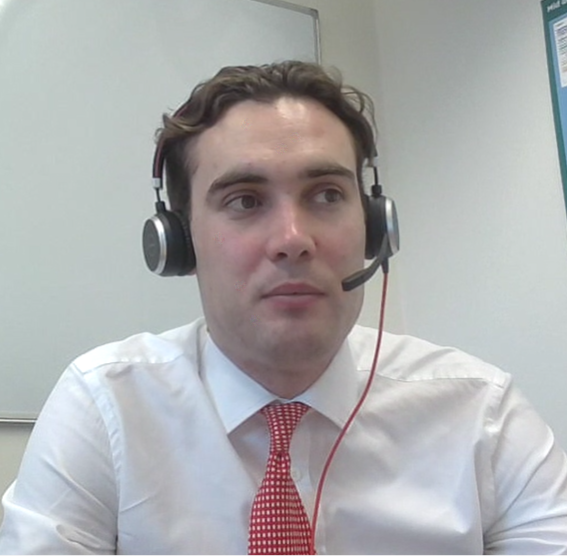
Local MP Henry Tufnell, who represents Carmarthen West and South Pembrokeshire, described the incident as deeply upsetting for what he called a close-knit community.
He said he was thinking of the teacher and pupils affected and thanked Dyfed-Powys Police and ambulance crews for their professionalism.
Meanwhile Senedd Member Samuel Kurtz said: “Deeply concerning news across the water in Milford Haven.
“Sadly, violence in our schools is becoming all too common, and thanks must go to the emergency services for their timely response. Thoughts are with the injured teacher, their family and the wider school community.”
Leader of the Welsh Conservatives Andrew RT Davies said teachers must feel safe at work and called for continued support for school staff.
Teaching unions also responded.
NASUWT said teachers “deserve to feel safe in their workplace” and that any violence against staff must be taken seriously, while National Education Union said schools must remain safe spaces for both pupils and staff and urged continued focus on safeguarding and behaviour support.
All said support would be offered to the Milford Haven school community in the days ahead as police investigations continue.
Crime
Teacher discharged as police step back from Milford Haven school after assault

Teenager remains in custody as school closes and patrols increased to reassure community
POLICE have confirmed they are no longer stationed at Milford Haven School after a teacher was assaulted by a pupil on Thursday afternoon (Feb 5), as the injured member of staff has now been discharged from hospital.
In a joint statement issued by Dyfed-Powys Police, Pembrokeshire County Council and Hywel Dda University Health Board, Superintendent Chris Neve said swift action had been taken to protect pupils and staff.
He said: “Police are no longer in attendance at Milford Haven Comprehensive School, following a report of the assault of a teacher at approx. 3.20pm this afternoon.
“I would like to reassure parents, and the wider community, that swift action was taken to both safeguard pupils and teachers, and to trace the suspect as soon as this report was received.
“The teacher has now been discharged from hospital and is being supported by specialist officers. All pupils at the location were safe, and all returned home unharmed. A 15-year-old boy has been arrested and remains in police custody as enquiries continue.
“You will see a higher than usual police presence in the area over the coming days – these will be dedicated patrols to provide further reassurance.”
The injured teacher was earlier taken to hospital by road ambulance.
An immediate lockdown was put in place at the school while emergency services responded. Most pupils had already left for the day, but those still on site were secured inside classrooms and offices as a precaution.
School closed on Friday
Council leader Cllr Jon Harvey said the school would be closed to pupils on Friday to allow support and safety measures to continue.
He said: “We would like to thank staff and pupils at Milford Haven School for implementing a swift and effective lockdown in response to this incident.
“While the school will be closed to pupils tomorrow, if there are any learners who require additional support they are welcome to attend and there will also be support for staff on site.
“We’d like to reassure learners and parents, along with the wider community, that all measures to ensure safety are being taken.”
The health board added that anyone needing urgent mental health support can call NHS 111 and press option 2 for 24-hour assistance.
National spotlight
The incident has drawn national media attention.
BBC News broadcast live from the school gates during its Ten O’Clock News bulletin, while ITV News and several national titles also covered developments.
Journalists from a number of UK outlets, including The Sun, contacted The Herald as events unfolded, with several Welsh and national publishers using photographs first taken by Herald reporters.
Residents said the scale of coverage was unprecedented for the normally quiet port town.
Police enquiries are continuing.
Photo caption:
Police outside Milford Haven School following Thursday’s incident (Pics: Herald).
Health
Health board targets rise in steroid and gym drug use across west Wales

THE LOCAL health board has launched new targeted measures after recording a sharp rise in the use of steroids and other image-enhancing drugs across the region.
Hywel Dda University Health Board says needle exchange figures show significant growth over the past two years in people seeking support related to Image and Performance Enhancing Drugs (IPEDs), including anabolic steroids and so-called Selective Androgen Receptor Modulators (SARMs).
SARMs, while marketed online as safer alternatives to steroids, are illegal to sell in the UK and health professionals warn they carry serious and largely unknown risks.
The health board has now teamed up with Dyfed Drug and Alcohol Service (DDAS) and Choices, a young people’s substance use service, to tackle what officials describe as an “emerging public health challenge”.
Workshops and outreach
Two key initiatives have been introduced.
Educational workshops are being delivered to young people, focusing on the risks of using performance-enhancing substances during physical development and the potential long-term effects on hormones, mental health and fertility.
At the same time, enhanced support is being offered to people already involved in gym and fitness culture, with harm-reduction advice, health monitoring and confidential drop-in services.
Support includes testosterone testing, blood checks, cycle provision kits and discreet one-to-one consultations.
One service user described the programme as “quick, professional and non-judgemental”.
They said: “The drop-in clinic for my blood test was really convenient. I was seen quickly and given a full run-down of the services available. The staff made me feel comfortable the whole time and I got my results back faster than expected.”
Taking support into the community
The team has also worked directly with local gyms, leisure centres and sports venues, speaking to more than 100 people during five outreach sessions.
Twelve DDAS staff members have completed specialist IPED training delivered by Public Health Wales to strengthen expertise within the service.
Rachel Wilson, Resilient Families Manager at Choices, said the aim is to reduce stigma.
She said: “We’re proud to work alongside Hywel Dda to ensure people who use IPEDs are met with understanding, not judgement. These initiatives are helping us reach individuals who may not have previously considered accessing support.”
Craig Jones, Prevention and Population Health Improvement Manager, added: “This work is about meeting people where they are. By listening and responding with compassion and evidence-based care, we’re making a real difference.”
Dr Ardiana Gjini, Executive Director of Public Health, said the approach showed the board’s commitment to early intervention.
She said: “These initiatives reflect a proactive, collaborative response to emerging health challenges and demonstrate our dedication to protecting the health of our communities.”
Anyone seeking confidential advice or support can contact DDAS on 03303 639997 to book an appointment.
-

 Crime1 day ago
Crime1 day agoSex offender jailed after living off grid in Pembrokeshire and refusing to register
-

 Health8 hours ago
Health8 hours agoHealth board targets rise in steroid and gym drug use across west Wales
-

 News3 days ago
News3 days agoPrincess of Wales visits historic Pembrokeshire woollen mill
-

 Crime6 days ago
Crime6 days agoPembroke man accused of child sex offences sent to Swansea Crown Court
-

 Health4 days ago
Health4 days agoDoctor struck off after sexual misconduct findings at Withybush Hospital
-

 Crime10 hours ago
Crime10 hours agoTeacher injured and teenager arrested for attempted murder at Milford Haven School
-

 Community6 days ago
Community6 days ago50s women threaten legal action over pension compensation refusal
-

 Crime7 days ago
Crime7 days agoManhunt intensifies after woman seriously injured in Carmarthen park stabbing


























